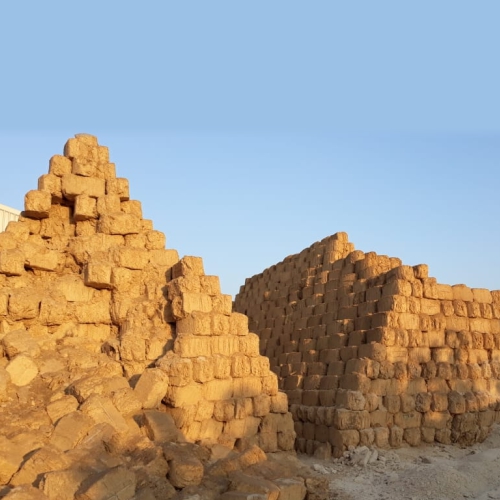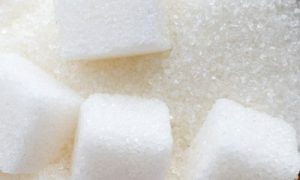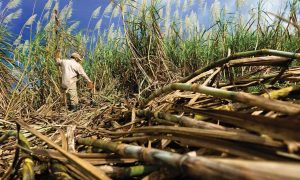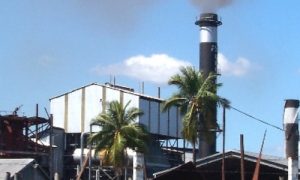Innovative Acadiana plant to turn sugar cane bagasse into biofuel pellets

Louisiana’s sugarcane industry, with a $4.2 billion annual impact, faces a significant waste problem. The new Delta Biofuel plant in Jeanerette aims to tackle this by turning excess bagasse, a byproduct of sugarcane processing, into fuel pellets. Set to open in September, the plant will create 120 jobs and produce 1,000 tons of pellets daily. These pellets will be shipped to Europe for biomass energy. This development promises to reduce waste, support local agriculture, and contribute to renewable energy.
The sugar cane industry, while producing a $4.2 billion annual economic impact in Louisiana, creates tons of waste product every year. What to do with that waste has long been a problem for sugar producers. Developers of a new plant in Jeanerette hope to turn it into fuel. Several steps are involved before you get a sweet spoonful of sugar for your morning coffee. Sugar cane stalks are harvested, then pressed for juice, which is further refined.
The pressing of the stalks creates a byproduct called bagasse, Much of the bagasse is used in the milling process to fuel machines at sugar mills, according to LSU AgCenter sugar cane specialist Kenneth Gravois.
There is a problem: The process creates a lot of bagasse, and not all of it can be burned.
“Every mill has a pile, and everyone’s looking for a way to reduce it,” Gravois said. “We’ve been looking for alternative uses for bagasse for as long as we’ve been processing sugar in Louisiana.”
That is where Delta Biofuel will step in. The Jeanerette plant will turn bagasse into dense fuel pellets that can be burned to generate electricity at biomass plants. It will be the first in the nation to create fuel pellets out of sugar cane.
Plant manager Jason Nugent holds bagasse pellets, which will be made at the Delta Biofuel plant when construction is complete, Monday, Aug. 12, 2024, in Jeanerette, La.
Excess bagasse accounts for 5% to 15% of the total byproduct produced in the sugar cane process. Louisiana harvests around 16 million to 17 million tons of sugar cane each year, and the crop continues to grow in acreage. This means mills are left to deal with a huge excess of waste product.
“We’re solving the bagasse problem for the mills,” Delta Biofuel Plant Manager Jason Nugent said.
The 26-acre facility, located outside of Jeanerette, is set to open in September and will provide 120 jobs for the Acadiana region. The facility aimed for a July opening, but rains slowed construction. The process takes bagasse and thrashes it before it is sent to hydration tanks. The product is washed and dried before being broken down further and finally pressed into pellets.
Sugar mills burn some bagasse but cannot use it all. Also, when it rains during harvesting, stalks get covered in mud and debris, and those cannot be burned as fuel. Delta will scrub and clean dirty bagasse so it can be further processed and turned into fuel, Nugent said.
Delta Biofuel uses a specialized process to create the fuel pellets, which will be shipped to the United Kingdom and continental Europe to fuel biomass facilities.
Construction on the Delta Biofuel plant continues Monday, Aug. 12, 2024, in Jeanerette, La.
Gravois said the sugar cane industry has long sought alternative uses for bagasse. It toyed with ideas like using sugar cane fibers to produce insulation boards, as well as clothing and paper products, but the plans never seemed to get off the ground. In the end, the best use was simply burning it as a fuel source in sugar production. But storing the excess comes at a steep cost, as mills must pay employees and purchase equipment to store and maintain the waste, he said.
Delta will be able to produce pellets year-round and continuously reduce sugar mill stockpiles, Nugent said. At peak production, the facility will be able to make around 1,000 tons of fuel pellets a day. Delta’s facility will not be entirely fueled by its pellets, so it will not be a closed loop. Instead, Delta will use its product to run the facilities’ drying systems.
Gravois does not see the development as causing much change to the current landscape for farmers. In the future, farmers may move toward more fibrous varieties of cane that produce less sugar. As it currently stands, Louisiana farms’ focus is producing more sugar.
Iberia Parish is the largest sugar cane-producing parish in the state. Delta chose it because it is home to Louisiana’s largest sugar mill, which is operated by M.A. Patout & Son. The biofuel facility will have a conveyor belt transporting bagasse between the two businesses.
Iberia Parish is also home to another alternative energy manufacturer, First Solar, which is currently building a $1.1 billion plant. The plant will employ more than 700 people, the company announced when it broke ground last year.
The Delta Biofuel plant is seen beyond a field of sugar cane Monday, Aug. 12, 2024, in Jeanerette, La.
Mike Tarantino, CEO of the Iberia Industrial Development Foundation, said Delta Biofuel fits perfectly into Iberia Parish. He believes the company will help support the agricultural sector of its economy while adding to its diversified job sector. “We’re an energy-producing parish in many respects. We’re an agricultural parish in many respects. We’ve got a deep, long history with oil and gas, but like any good stock portfolio, it is never good to just have one product,” Tarantino said.
Mike Strain, commissioner of Agriculture and Forestry, said the development comes at a great time.
“This is a very positive thing. It will only serve to strengthen the sugar cane industry,” Strain said. He called the production of biofuels a boon for the state as it continues to diversify its energy market.
The need for renewable and regenerative fuels will increase across the world and in America in the future. Biofuels are only one way in which the state will continue to be a significant player in global and American energy production.
“We’re building the largest LNG export facility in the world right now … So we’re an energy powerhouse, and we’ll remain so,” he said.
















